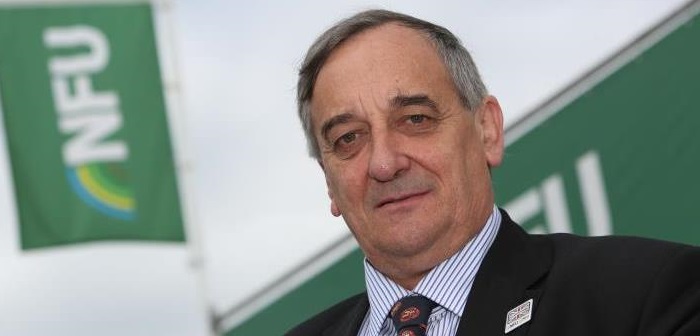Farming must be front and centre of Brexit negotiations, the NFU has urged, on the day Prime Minister Theresa May triggers Article 50 to kick-start the official process of Britain leaving the EU.
NFU President Meurig Raymond said the importance of agriculture – the bedrock of the nation’s food and drink industry, which is the largest manufacturing sector in the UK, must not be underestimated.
Raymond also stressed that farming will only get the right deal if its coherent voice is heard by decision makers and that industry will work together to ensure that the country continues to enjoy great quality British food.
“Our industry is vital to Britain”, said Raymond. “We have to take this opportunity to tell the country – and the world – of our high standards; of the pride we have in the food we produce and the importance of our industry. Farming and food production plays a crucial role in the life and economy of our country and therefore it is important this government ensures food and farming is at the forefront of their priorities as they negotiate our exit from the EU.
“The report we published at NFU Conference last month showed for the first time farming’s contribution to the country in monetary value – for every £1 invested in farm support, farming delivers £7.40 back to the UK economy. This clearly demonstrates the role farmers play in contributing to the wealth and prosperity of our nation.
“Agriculture is at the heart of this country of ours. It produces the raw ingredients for the largest manufacturing sector here – food and drink. This sector is worth £108 billion, employs nearly four million people and generates around £18 billion worth of export earnings annually.
“But it’s not just our core role in feeding the nation safe, high-quality food. Farming also plays an important role in managing the great British countryside – over 70 per cent of the UK’s land area is farmed, providing habitats for wildlife and iconic landscapes for us all to enjoy. This, too, has economic benefits for people living and working in rural communities as rural tourism is worth at least £2 billion a year.
“The NFU is already engaging heavily with key personnel in UK Government – last week I met with Secretary of State Andrea Leadsom and was pleased that she shared our ambition to maintain free and open trade with the EU once we leave. Defra also acknowledged the need to ensure that future reforms to the immigration system accommodate the labour requirements of the food and farming sectors.
“We will continue to seek meetings with important Whitehall departments such as Defra, the Home Office and the newly created Business, Brexit and International Trade departments.
“But what we need is our collective, coherent voice to be heard. The more NFU members who can get involved and meet their MPs, the greater impact we will have together. We will also continue to liaise with other organisations, both within and beyond the farming sector.
“This is a monumental time in the nation’s history. We are being given a once-in-a-generation opportunity to shape the future of UK agriculture. We can now work with government to shape a domestic agricultural policy that promotes competitive, profitable and progressive farm businesses, designed to meet the specific needs of UK farmers.”


